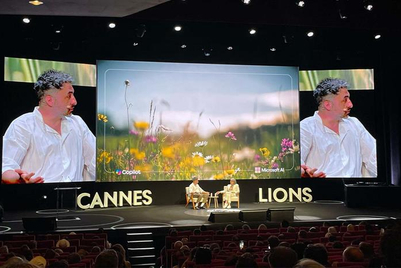
First there was a lack of transparency. Then, there was confusion and uncertainty around new rules. Together, they amounted to a slowdown for the industry dealers in data. But now, post-GDPR, business appears to be picking up again.
“For a long time data was seen too much as a black box,” says Aaron Jackson, international managing director at audience tech platform Eyeota, who says new rules and regulations like GDPR have forced businesses to talk about privacy and move the industry forward—for the better.
“Definitely there’s confidence back in the market now that people understand it more, now that the dust has settled and people understand how consent works," he says. "And there’s confidence back in the [data] buying community.”
Jackson should know. His company, which competes with the likes of Lotame and Oracle Data Cloud, runs a data marketplace and 'onboarding' services. It takes data from publishers or online sources into a larger pool to create audience segments and then pushes them into buying platforms like data management platforms (DMPs) and demand-side platforms (DSPs) as brand tools for programmatic campaigns.
Before, during and after GDPR, Jackson was in charge of Eyeota’s EMEA business, where he led a three-month roadshow of education sessions for clients. Part of the process involved navigating a painful extended audit of publishers, who waffled between gathering user consent or claiming ‘legitimate interest’ in user data, before nearly all settled on the former. Working with publishers to get their ducks in a row was another task, since marketplaces like Eyeota would not work with uncompliant sources.
But as difficult as all that was,“the biggest concern is always perception of buyer,” Jackson says. GDPR was a monumental shift, but the education out in the market wasn’t fantastic. Brands didn’t understand the way in which all vendors were interpreting GDPR, so while waiting for the process to shake out, they simply opted to stop using data for the time being.
“My concern with GDPR was always perception of brands,” Jackson says. “And we definitely saw that in the European market for a period of time. Brands that were on the conservative side took a wait-and-see approach. I think that will be the same no matter where data and privacy laws change.”
Shifting ground
And changing they are. All over. California’s new Consumer Privacy Act takes effect in January 2020. Brazil’s new data privacy laws, consolidating more than 40 current regulations, land in August of next year. Australia has proposed changes to the Australian Privacy Act, and many other Asian countries have updated their rules or are considering new ones.
Jackson says everyone around the world is realising privacy is changing, and given that Internet laws have been largely stagnant since 1998 it’s just a matter of time before all markets move in that direction. “They definitely needed updating, and as a result the Asian market is paying attention,” he says.

The problem is trying to work with data shared internationally when laws vary across multiple jurisdictions.
“With Asia, you end up with a similar problem if you start to have different laws in different markets,” Jackson says. “Not to mention it’s a very costly exercise for businesses.”
However, given the work already put in around GDPR globally, most businesses are already in a much better place, not to mention that data marketplaces can now apply the hard lessons learned in going through the process.
“I expect that if the Asian market goes through a privacy law change, I would expect we would see a similar thing, but I would hope that from a world perspective we’ve learned a lot from the first pass of the Europeans and that we can educate buyers in a much more effective manner,” Jackson says.
Who best to manage brand data?
One lingering effect from the GDPR exercise, as well as from high-profile data controversies like Cambridge Analytica, has been that more brands want to control their own data.
Recent data from Campaign and Kantar in Asia-Pacific confirmed that while agencies are increasingly repositioning as data service providers, most brands prefer to manage their data in-house.
“There’s a real push and pull between the agencies and the brands right now. Agencies want to make data decisioning at the heart of their business and so whether they’re licensing data or white labelling data or buying companies that have a data asset,” Jackson notes, referencing the data businesses of the major holding companies: Axciom (IPG), Merkle (Dentsu), Xaxis and [m]Platform (WPP), Spine (Publicis) and Omni (Omnicom) “The agencies are really trying to bring data into their business so they can make decisions at scale for brands. But a lot of brands want to bring data into their own businesses.”
It’s not simply that brands want the data for media campaigns. They also want the data that Eyeota and others push to DMPs to build their consumer insights and business modeling around. So there’s lots at stake.
“A lot of brands do want to do it themselves,” says Jackson, but in a lot of cases they still employ agencies who can use their own data at scale.
Brands with the right expertise, however, may be more inclined to work directly with DMPs to enrich their data and apply it themselves.
“It just depends on brands being sophisticated enough to move in that direction and having the right resource internally to do it.”
| This article is filed under Tech Talk: A collection of brief news items on programmatic buying, mobile ads and all forms of adtech and martech tools and platforms. |


.jpg&h=334&w=500&q=100&v=20250320&c=1)


.png&h=334&w=500&q=100&v=20250320&c=1)




.png&h=334&w=500&q=100&v=20250320&c=1)

.jpg&h=268&w=401&q=100&v=20250320&c=1)
.png&h=268&w=401&q=100&v=20250320&c=1)
.jpg&h=268&w=401&q=100&v=20250320&c=1)
.jpg&h=268&w=401&q=100&v=20250320&c=1)
.png&h=268&w=401&q=100&v=20250320&c=1)
.png&h=268&w=401&q=100&v=20250320&c=1)

